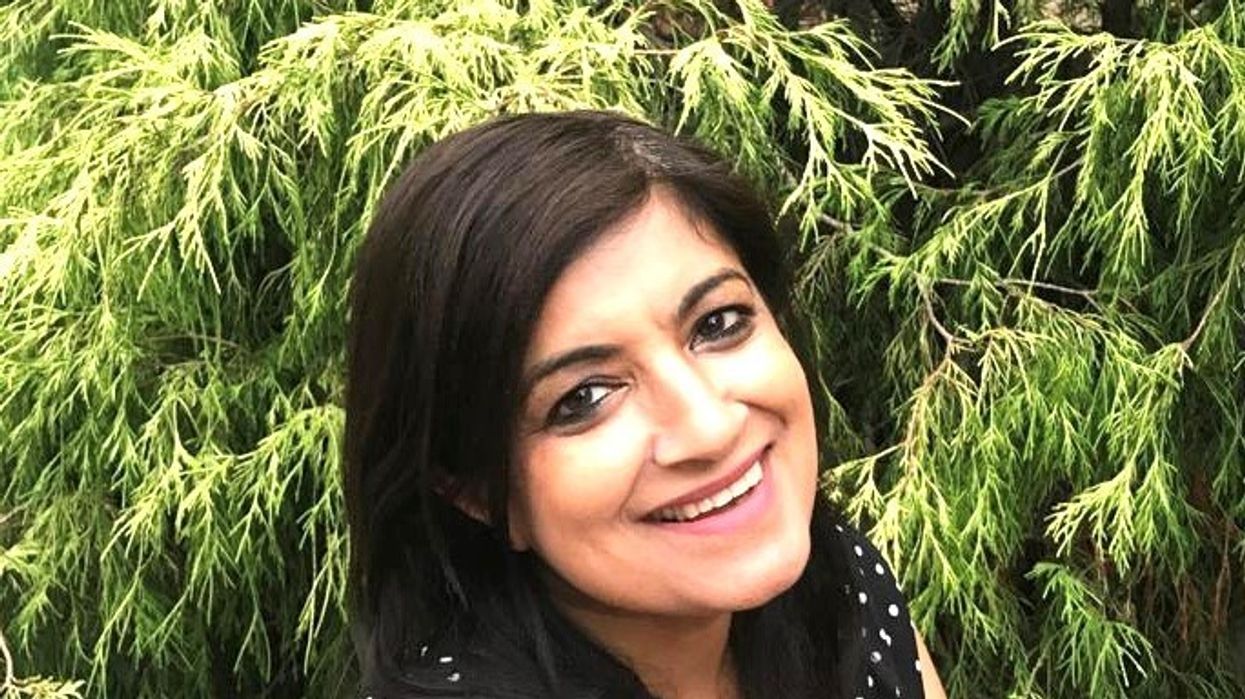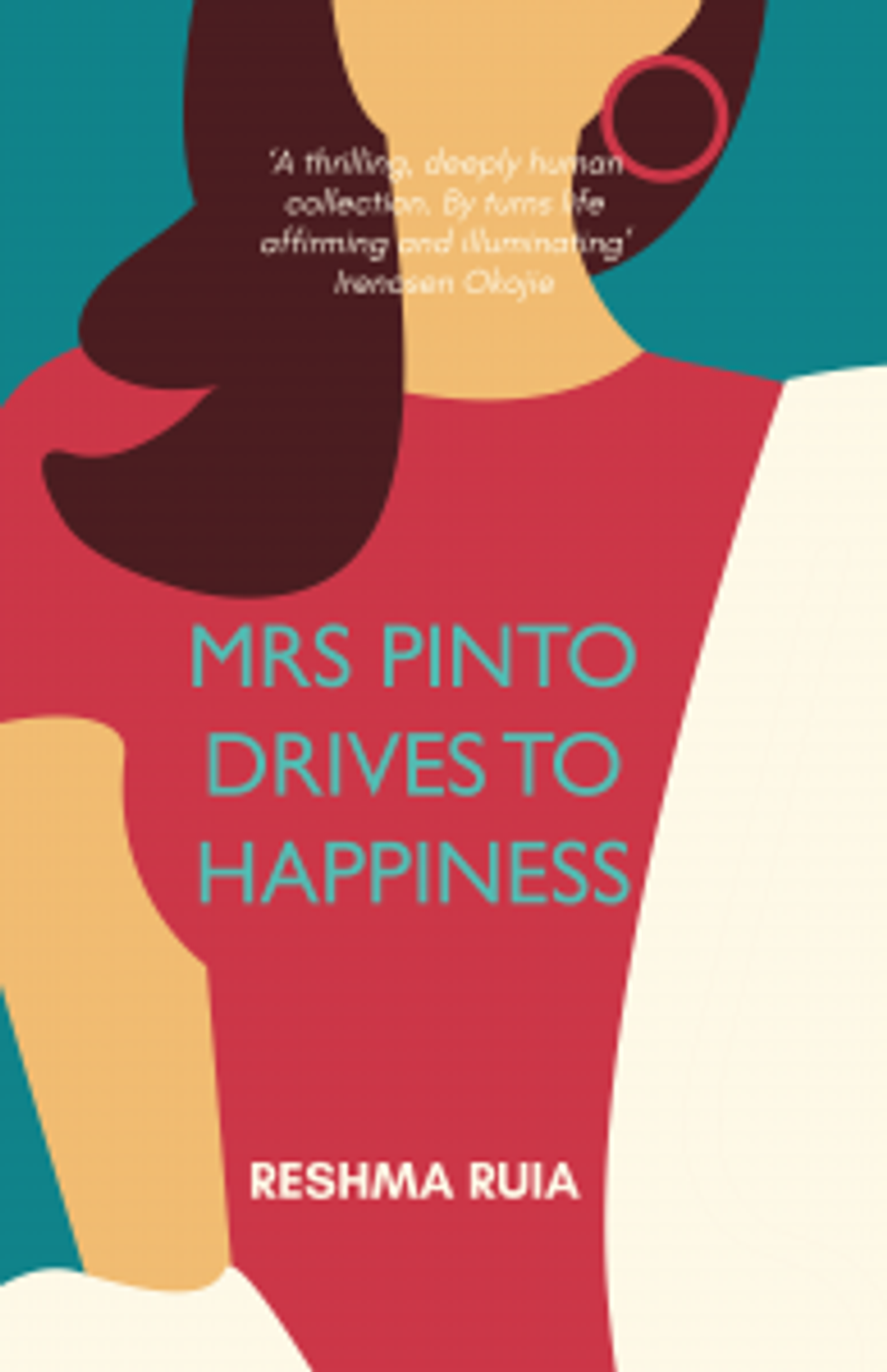RESHMA RUIA DISCUSSES HER NEW BOOK OF SHORT STORIES
WHETHER it is novels, writing a collection of thought-provoking poetry or creating characters that make you look at life through a new lens, Reshma Ruia has a great gift with words.
That impressive range has come together beautifully for her new book Mrs Pinto Drives To Happiness. The cleverly crafted collection of life-affirming short stories looks at cross-cultural contemporary life through diverse characters that connect with readers on different levels. The book about new beginnings and important life lessons, is the latest chapter on an interesting writing journey that has explored different mediums and shone a spotlight on human emotions.
Eastern Eye caught up with Reshma for a thought-provoking discussion on her new book, key messages she wants to convey, writing and what she thinks makes for a good story.
What first connected you to writing?
I was always quite a solitary child, more fond of libraries than the playground. I loved the multiple worlds created within the pages of a book and a natural progression from reading was writing.
What led you towards writing Mrs Pinto Drives To Happiness?
As you are aware I write novels, poetry and short stories and this collection grew organically over the years. While the stories differ in terms of narrative and setting, they are united by some common concerns, which made them into a harmonious whole. Some of these stories have been shortlisted and long listed for awards and it just felt right to put them together as a single body of work.
Tell us more about the book?
These stories offer a social and political commentary on those living on the periphery and span continents and cultures – from the subcontinent to Africa, America and England. They capture the lives of ordinary people and explore universal themes of identity, culture, and home.
What made you want to write short stories in particular?
Short stories are quite a challenging and rewarding form of expression. One can’t be as indulgent with form, structure, or language as in a novel or a poem. It has a finite length which means language is critical. Every word carries weight. Short stories demand more from readers as well because they are suddenly presented with a whole smorgasbord of ideas and worlds. I enjoy the imaginative freedom presented by a short story. One can leap between different worlds, characters, and narrative styles.
Where did you get inspiration for the stories from?
Like all writers, I am constantly observing the world around me and take inspiration from an overheard conversation in a café or a trip to the museum. Newspaper articles can provide a rich source of material as can a supermarket, a football match, or a funeral. I am not interested in writing about kings or heroes; what interests me is the man or woman on the street. How do they negotiate the challenges of life? How do they create a sense of home and belonging when down on their luck?
What inspired the interesting title of your book?
Actually, the title is taken from the first story in the collection. Mrs Pinto represents the spirit of survival and quiet defiance that can be sensed in most of the stories. I also felt the title has quite a cheerful and intriguing ring to it. Is ‘happiness’ a country or a state of mind? Is it a metaphor for something deeper? The readers need to read the collection.
What are key lessons you want to convey through the stories?
Resilience of the human spirit above all and an empathy for those who are less fortunate. Many of the stories feature protagonists who are crossing boundaries, whether of countries or emotions. They encounter seismic upheavals in their lives but are ordinary, marginalised everyday people, the kind one would look through on a street. I want to dignify such people and give them their rightful space.
Did you learn anything while writing the stories?
I learnt about the importance of structure and narrative flow. Most stories are
about four thousand words, and it was important to compress and articulate an entire lifetime of anguish or joy within a finite set of words and imagery.
What according to you makes for a good story?
A good story should stay with the reader for a long time. It should make them learn something new about themselves and the world around them. It should open doors and windows that hitherto hadn’t even existed.
What kind of books do you enjoy reading yourself?
I love Elizabeth Strout, Raymond Carver and Alice Munroe. These are writers who are masters of their craft and use language economically to great effect. They have an acute understanding of the human psyche in all its flaws and imperfections. Jhumpa Lahiri and Bharti Mukherjee are two Indian diaspora writers that I turn to constantly whenever I want to learn something more about the dilemmas and challenges faced by immigrants. I like quiet, reflective prose that builds up gradually to a crescendo.
What can we expect next from you?
I have a novel coming out next summer. It is set in Manchester and is about love, betrayal and belonging.
How do you feel about your new book being published?
I am over the moon! The book was conceived and completed through the pandemic and I am grateful to my publisher, Dahlia Books for championing it. Short stories as a genre are very difficult to publish so I feel extremely fortunate.
Why do you love being a writer?
It is tough. There are constant rejections, and it is solitary, time consuming, and a financially uncertain way of living but there is no other job I’d rather do! I love the freedom to create different worlds and lives and use my imagination in a way that connects with the reader. Writers build bridges between communities and show the commonality of the human spirit. We need more writers and less politicians in my opinion.
Twitter: @reshmaruia; reshmaruia.com





